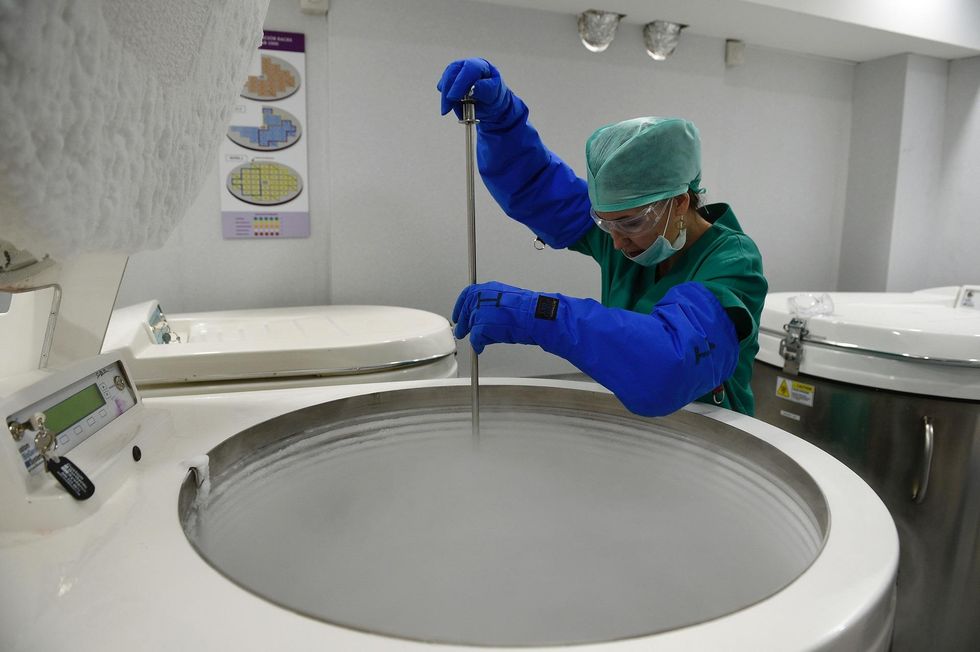
Storage tanks at two separate U.S. fertility clinics failed in the past few weeks, compromising thousands of frozen eggs and embryos. (Lluis Gene/AFP/Getty Images)

One of two freezers storing specimens at an Ohio fertility clinic failed over the weekend, leaving roughly 700 patients with questions over possible damage to their samples.
Staff at UH Fertility Center at Ahuja Medical Center said a malfunction in the liquid nitrogen storage tank was discovered Sunday, and occurred at some point after workers had left the previous afternoon. The tank's temperature had risen to a dangerous level, possibly causing irreparable damage to its contents.
The first lawsuit has been filed in response to the case, by an Ohio couple who had two frozen embryos stored in the freezer. Amber and Elliot Ash had their 2-year-old son via in vitro fertilization, and the remaining embryos were stored for the future at UH Fertility Center.
Elliot is a cancer survivor who had sperm stored in his early 20s prior to cancer treatment. After he married Amber, he transported the frozen sperm himself to the facility, recalling it to be "the most important drive of (his) life."
Robert DiCello, the Ashes' attorney, said "since the news broke, our office phones have been ringing." He is requesting the lawsuit be certified as a class action.
Pacific Fertility, a clinic in San Francisco, had a similar malfunction on March 4, saying that "several thousand" eggs and embryos had also been compromised when one of their nitrogen tanks failed.
The facility's president, Carl Hebert, joined clinic doctors in calling patients to notify them of the possible damage Saturday night. He described the nature of patients' responses, saying "Anger is a big part of the phone call. Our goal is to provide all the patients we see with some kind of a family. ...We need to think: If this tissue doesn't work, what are the steps, and have you not feel defeated."
Some of the eggs in the compromised tank at Pacific had been in storage for as long as 10 years. A number of samples stored at the UH Fertility Center had been frozen in the 1980s.
In both instances, the extent of compromise to the specimens is unclear. The eggs and embryos would need to be thawed in order to assess the extent of any damage.